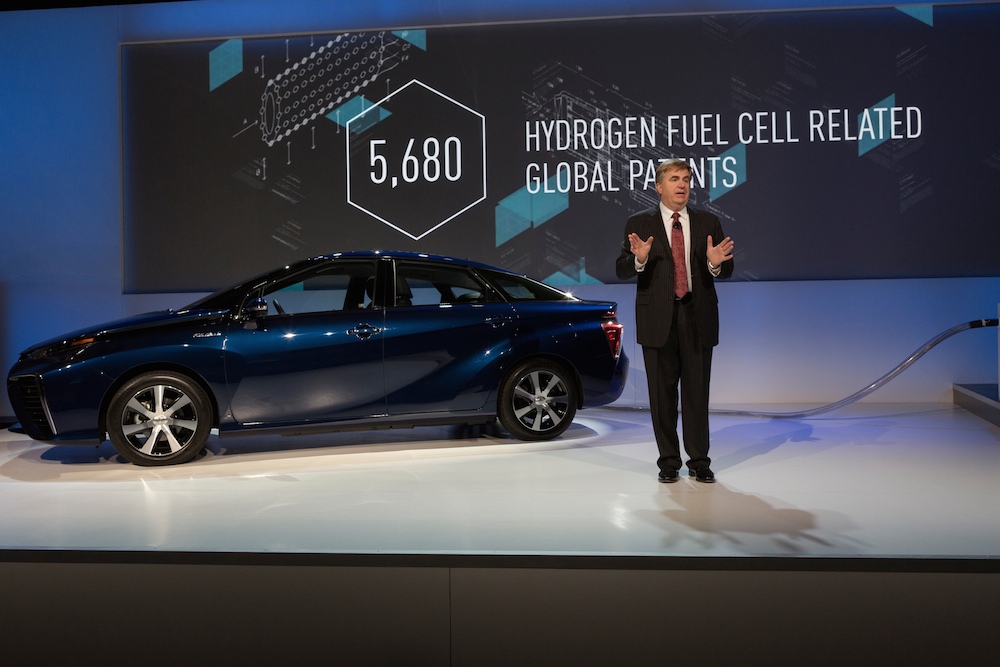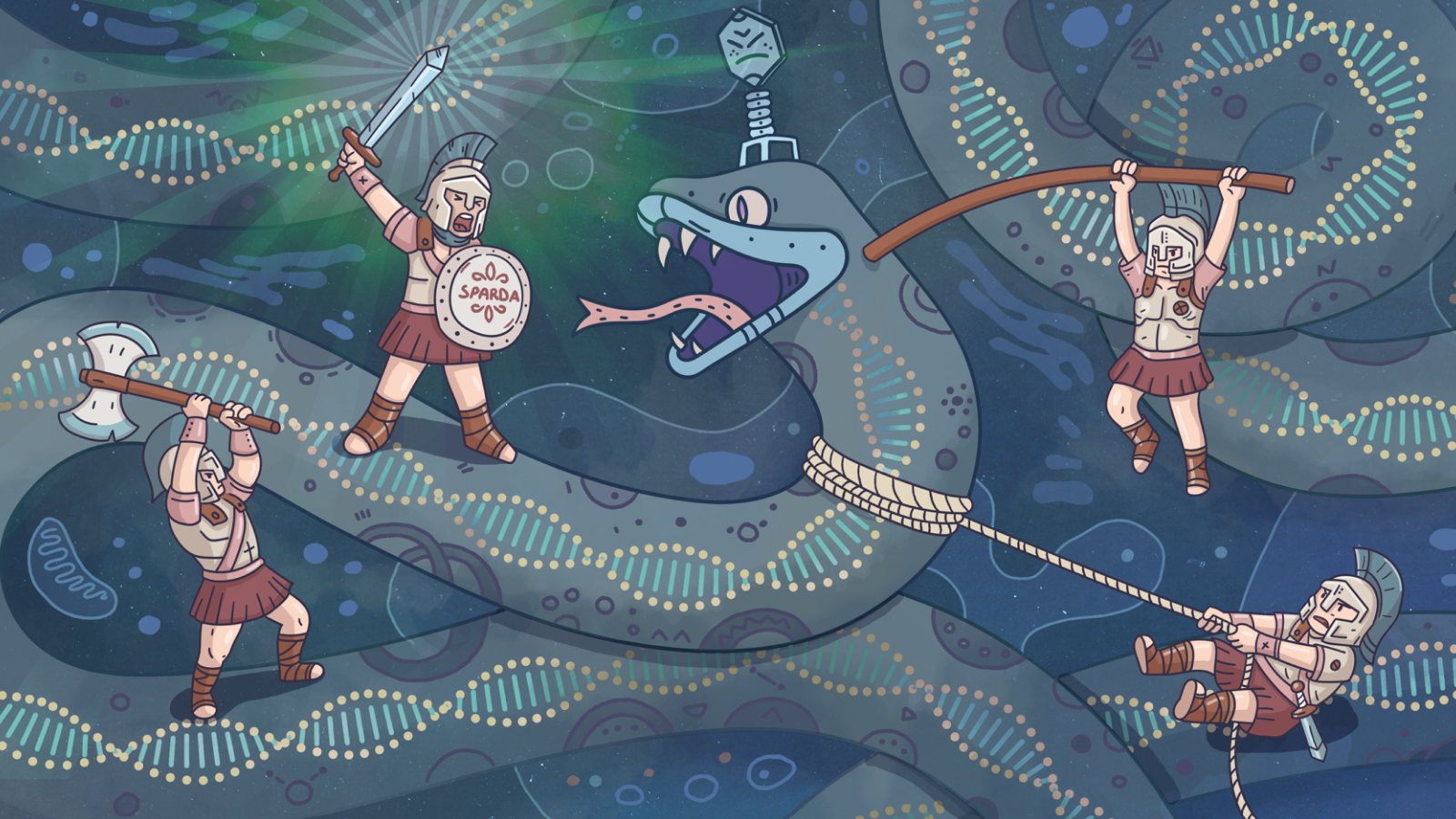Following Tesla's Lead, Toyota Makes Fuel Cell Patents Free

Toyota is making thousands of its hydrogen fuel cell patents available royalty-free, the car company announced this week at CES 2015 in Las Vegas.
The company will make more than 5,600 fuel cell patentsavailable through 2020 to carmakers who produce and sell fuel cell vehicles, and to parts suppliers and companies interested in building and operating fueling stations, said Bob Carter, Toyota's senior vice president of automotive operations.
The carmaker hopes the move will spur worldwide development and innovation in fuel cell technologies. It comes on the heels of a similar decision by billionaire entrepreneur Elon Musk to make the patents of his electric car company, Tesla Motors, freely available. [10 Technologies That Will Transform Your Life]
"The first-generation hydrogen fuel cell vehicles, launched between 2015 and 2020, will be critical, requiring a concerted effort and unconventional collaboration between automakers, government regulators, academia and energy providers," Carter said in a speech at CES.
Carter said Toyota has a "long history" of sharing its intellectual property, citing as an example the firm's licensing of patents for hybrid vehicles. But this is the first time Toyota is making its patents available for free, a move that "reflects the company's aggressive support for developing a hydrogen-based society," Carter said.
Companies that make fuel cell busses and industrial equipment can also receive the patents, and requests from nontransportation companies will be evaluated on a case-by-case basis, he said.
The announcement applies only to patents wholly owned by Toyota. Fuel cell vehicle-related patents will be available royalty-free until the end of 2020, while hydrogen-production and supply patents will remain free indefinitely.
Get the world’s most fascinating discoveries delivered straight to your inbox.
Toyota also encouraged other companies to share their fuel cell patents.
Carter said his company provided substantial funding for the development of hydrogen fueling infrastructure in California and the northeastern United States. In May 2014, the carmaker announced a $7.3 million loan to the Newport Beach, California-based hydrogen fueling company FirstElement Fuel to help maintain nearly 20 fueling stations across the state.
In November 2014, Toyota announced a collaboration with French multinational Air Liquide to design and supply a network of 12 hydrogen stations for New York, New Jersey, Massachusetts, Connecticut and Rhode Island.
Follow Tanya Lewis on Twitter. Follow us @livescience, Facebook & Google+. Original article on Live Science.

 Live Science Plus
Live Science Plus





